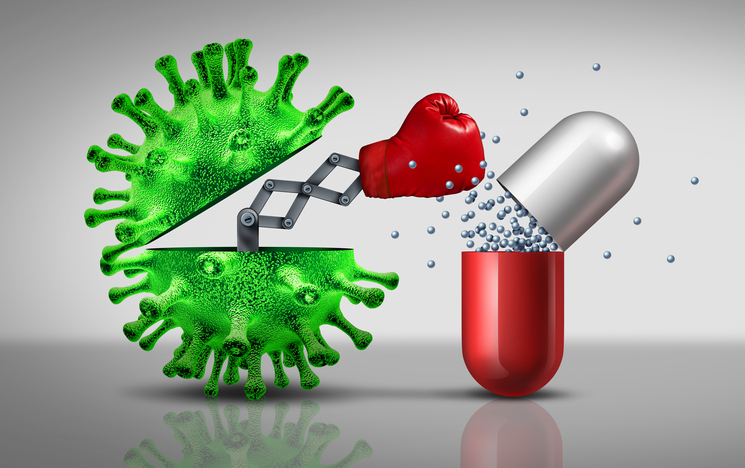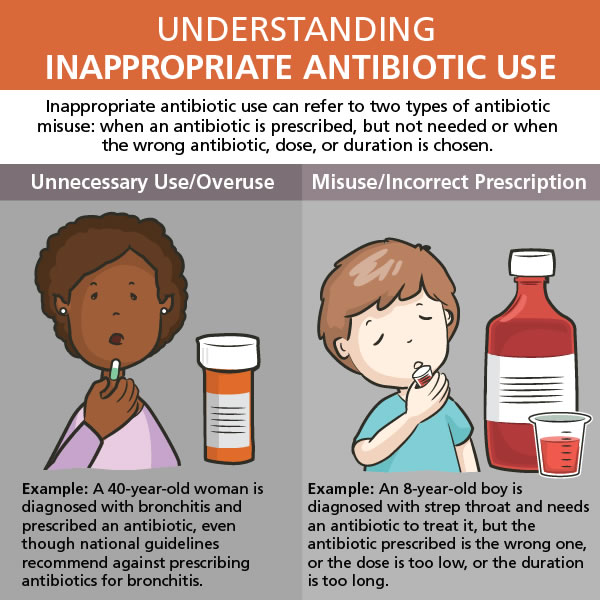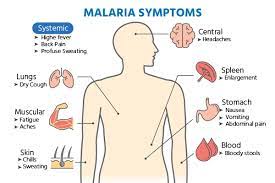Antibiotic Overuse and Resistance: A Call to Action for Medical Professionals

Antibiotic overuse and resistance pose significant dangers to public health . Overuse refers to the unnecessary or excessive use of antibiotics, while resistance occurs when bacteria develop the ability to withstand the effects of antibiotics, rendering them ineffective .

Antibiotic resistance has become a pressing global public health challenge, and its rapid acceleration can be attributed to the inappropriate use and overuse of antibiotics 1 . The emergence and spread of antibiotic-resistant bacteria pose a significant threat to the effectiveness of these life-saving drugs.
One of the main dangers of antibiotic overuse is the promotion of antibiotic-resistant bacteria 1 . When antibiotics are used unnecessarily or inappropriately, bacteria can adapt and become resistant to their effects. This can lead to the emergence of superbugs, which are difficult to treat and can cause severe infections .
Antibiotic resistance can also lead to treatment failure . When antibiotics become ineffective against bacterial infections, it becomes challenging to cure diseases that were once easily treatable. This can result in prolonged illness, increased healthcare costs, and even death in severe cases.
Furthermore, antibiotic overuse and resistance can have broader implications for public health . It can undermine the effectiveness of various medical procedures such as surgeries, chemotherapy, and organ transplants, as these often rely on the availability of effective antibiotics to prevent and treat infections .
In addition, the emergence of antibiotic-resistant bacteria can lead to the need for more potent, expensive, and potentially more toxic antibiotics 5 . This not only poses risks to patients but also puts a strain on healthcare systems and resources.
Efforts to combat antibiotic overuse and resistance include promoting appropriate antibiotic prescribing practices, improving infection prevention and control measures, and raising awareness about the responsible use of antibiotics . It is crucial for healthcare professionals, policymakers, and the general public to work together to address this global health challenge and preserve the effectiveness of antibiotics for future generations .

Medical professionals play a crucial role in combating antibiotic resistance 2 . As the primary prescribers of antibiotics, they have the power to make a significant impact on reducing overuse and misuse. Recognizing the gravity of this issue, it is imperative for medical professionals to take action and actively address the inappropriate use of antibiotics.
One of the key drivers of antibiotic resistance is the overuse of these medications. Studies estimate that approximately 80-90% of antibiotics are prescribed for oral use in primary care 2 . Common scenarios where overprescribing occurs include viral infections, where antibiotics are ineffective, and patient demands for antibiotics despite not having a bacterial infection.
To address this issue, medical professionals must prioritize education and awareness among both healthcare providers and patients. It is essential for medical professionals to stay updated with the latest guidelines and recommendations regarding antibiotic use. This includes understanding the indications and appropriate duration of antibiotic therapy for various infections.
Furthermore, medical professionals have a responsibility to educate their patients about the appropriate use of antibiotics. Patient education should focus on the differences between viral and bacterial infections, emphasizing that antibiotics are ineffective against viral infections. By providing accurate information, medical professionals can help patients make informed decisions about their healthcare.
In addition to education, medical professionals should actively promote antibiotic stewardship programs. These programs aim to optimize antibiotic use, reduce overuse, and improve patient outcomes. Implementing stewardship programs in healthcare settings has shown promising results in reducing antibiotic resistance 3 .
Collaboration between healthcare providers, policymakers, and researchers is also essential in addressing antibiotic overuse and resistance. Medical professionals can advocate for policies that promote responsible antibiotic use and support research efforts to develop new antibiotics and alternative treatment strategies.
In conclusion, antibiotic overuse and resistance are major public health concerns. Medical professionals have a vital role to play in combating this issue. By prioritizing education, promoting stewardship programs, and advocating for responsible antibiotic use, medical professionals can contribute significantly to the global effort of preserving the effectiveness of antibiotics. Together, we can work towards a future where antibiotics remain effective in treating bacterial infections and safeguard the health of future generations.




